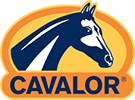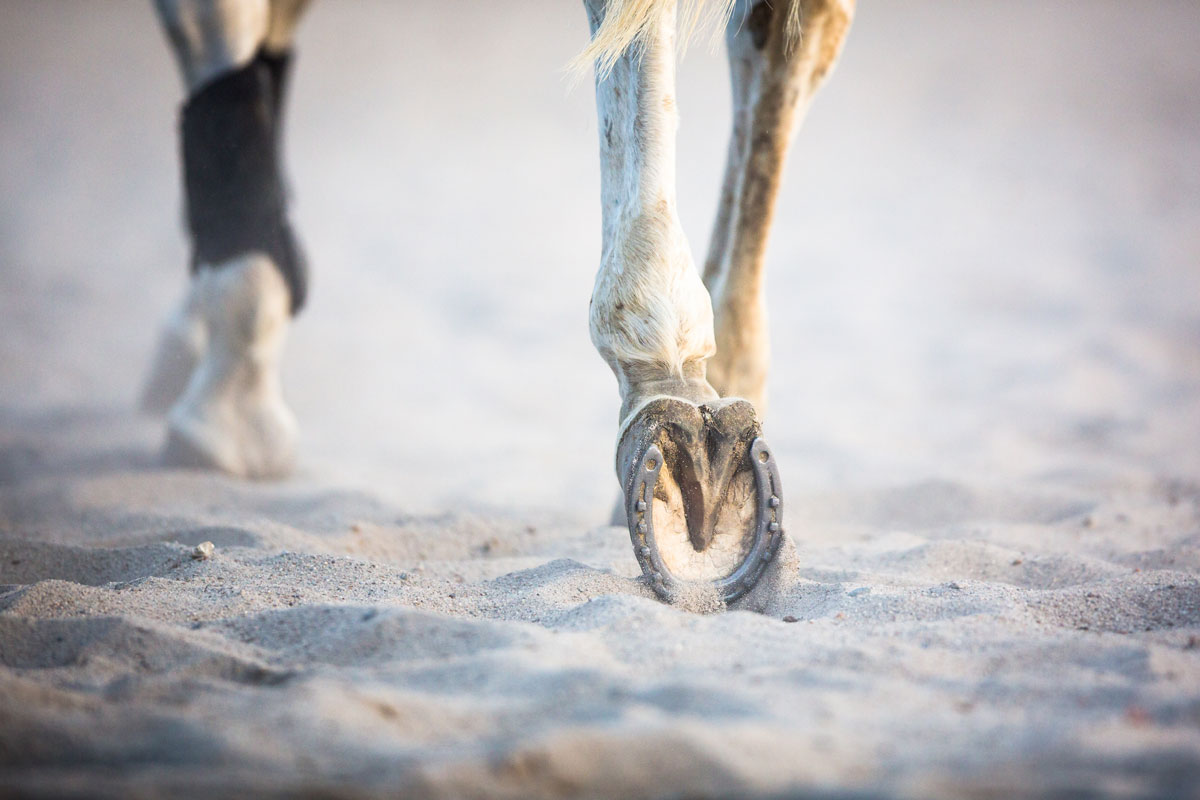Crumbly hooves, painful soles and dry feet are problems that many horses just ‘walk around’ with. The quality, shape and conformation of the hoof is largely something they are born with. How do you ensure that your horse’s hooves stay healthy? With the right stable management, a farrier who knows their job, and the right diet. Read these top tips to find out all about the three building blocks for healthy hooves. Healthy hooves, happy horse.
1. Stable management, the perfect basis
- Sufficient movement. Movement stimulates the function of the hoof mechanism and ensures good blood flow to the hoof.
- Healthy weight. Overweight horses place much more load on their hooves than horses at a healthy weight.
- Good stable hygiene. Ammonia is produced in a dirty stable when your horse’s urine mixes with the bedding you have used. Ammonia makes the hoof softer, and therefore weaker. Manure and urine affect the quality of the hoof and encourage thrush. To avoid thrush, we recommend keeping the stable as clean and dry as possible.
Do you still have problems with thrush? Use Dry Feet daily until the thrush has completely gone.
2. The farrier: your partner in crime
Ensure that your horse sees the farrier regularly. They will shoe or trim the hooves as necessary, preventing them from starting to split or crumble. They can also rectify natural weak spots, for example to slightly improve posture or provide extra support.
3. A balanced diet: often underestimated, but absolutely vital
Hooves grow slowly – around 1 centimetre per month. You can significantly improve the quality of hoof growth with a balanced diet and any necessary supplements. Protein, energy, vitamins, minerals, amino acids, fatty acids and trace elements are all key nutrients for hooves. Does your feed contain all those, in the right quantities? If it does, you don’t need to feed supplements. If your horse does not get them, or does not get enough, the best answer is to feed a supplement.
Did you know that a horse’s hoof is about 90 % protein?
The most important nutrients are proteins. A hoof is made up of about 90 % protein, with keratin in the top spot. Keratin contains amino acids that have a major effect on the hoof. Sulphur-containing and essential amino acids such as cysteine and methionine ensure that the cells in the horn – the outer layer of the hoof – are connected together flexibly. However, don’t forget that your horse cannot make these acids itself and must therefore obtain them from its diet.
Vitamins are important too, especially vitamin H or biotin. Your horse needs at least 25 milligrams of biotin each day to make a difference to hoof quality. Hooves also need other vitamins. Vitamin A, for example, helps to develop horn. Vitamins E, D and K, together with various B vitamins support the metabolism and hoof development. Just adding a single nutrient such as biotin to an unbalanced diet will never give the best results.
Minerals are another group of key nutrients. Copper strengthens the outermost wall of the hoof, helps to protect the cell membranes of the cells in the hoof and forms the key protein keratin. Zinc also helps to create keratin and supports the building and repair of cells in the hoof and hoof wall. Selenium also protects the cell membranes in the hoof. However, don’t feed selenium just for the sake of it; too much selenium can cause hoof problems itself. Furthermore, an overdose is dangerous for your horse.
Does your horse have really sensitive hooves? If so, we recommend Hoof Aid Special to provide support. This supplement contains not only biotin, but also yeasts, sulphate compounds, amino acids and fatty acids. This combination of ingredients is essential to achieve the right effect.
Health from the inside out: for hooves too
Fatty acids enable your horse to build a barrier against bacterial and fungal infections, and protect their hoof horn. They also improve the resilience of their hooves. Fatty acids are found in oils and fats.
In conclusion, changes in the weather such as dry days and damp nights can also have an effect on hoof quality. During a dry summer, we see more crumbly hooves than we do in the winter. Our tip: wash hooves regularly with water. As soon as the water has soaked in, treat the hooves with our PodoGuard hoof oil. This oil helps to maintain the balance of oils in the hoof and is enriched with bayberry oil. This protects the hoof against bacteria and other harmful influences.
Wondering about Cavalor’s range of products for healthy hooves? Take a look at them all here.


